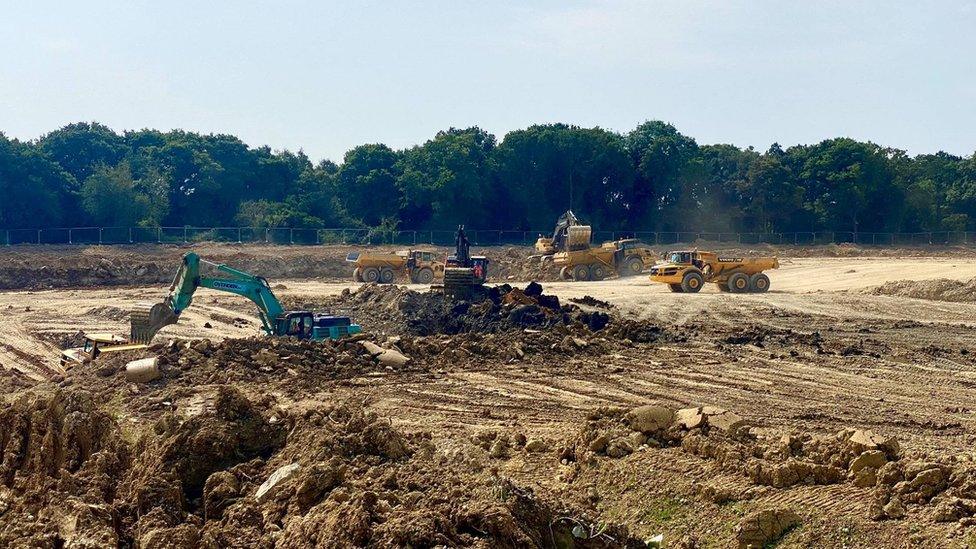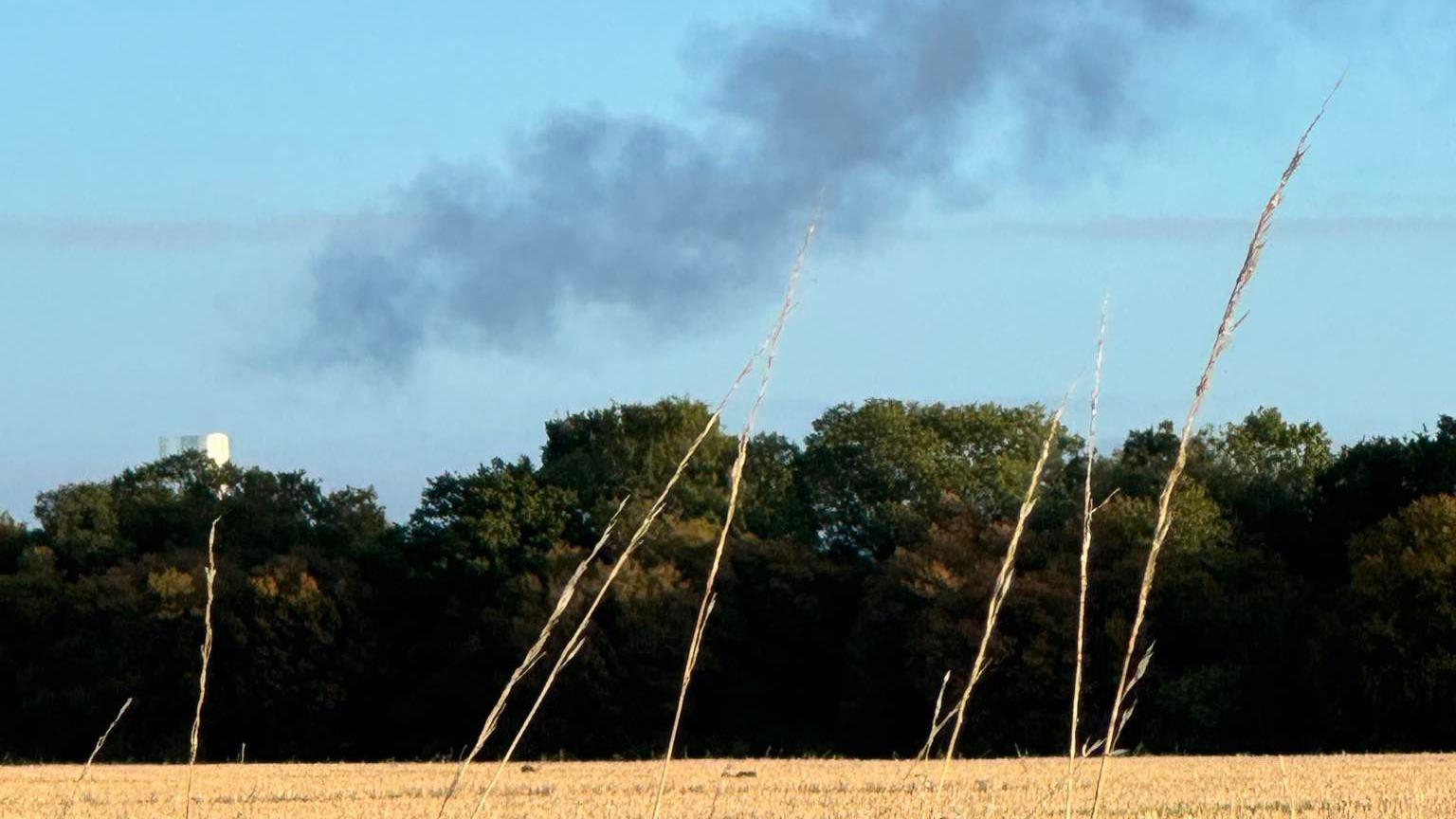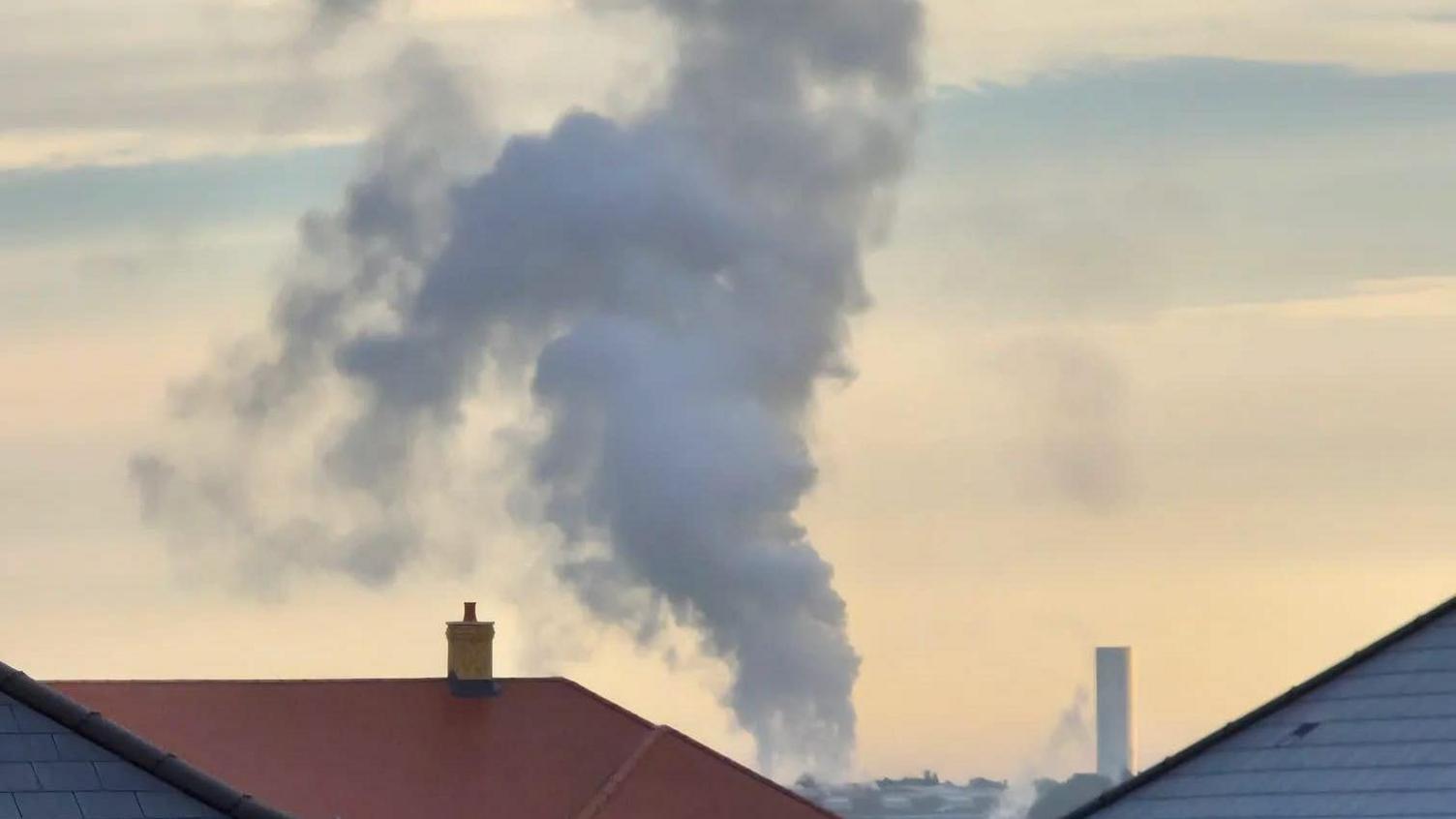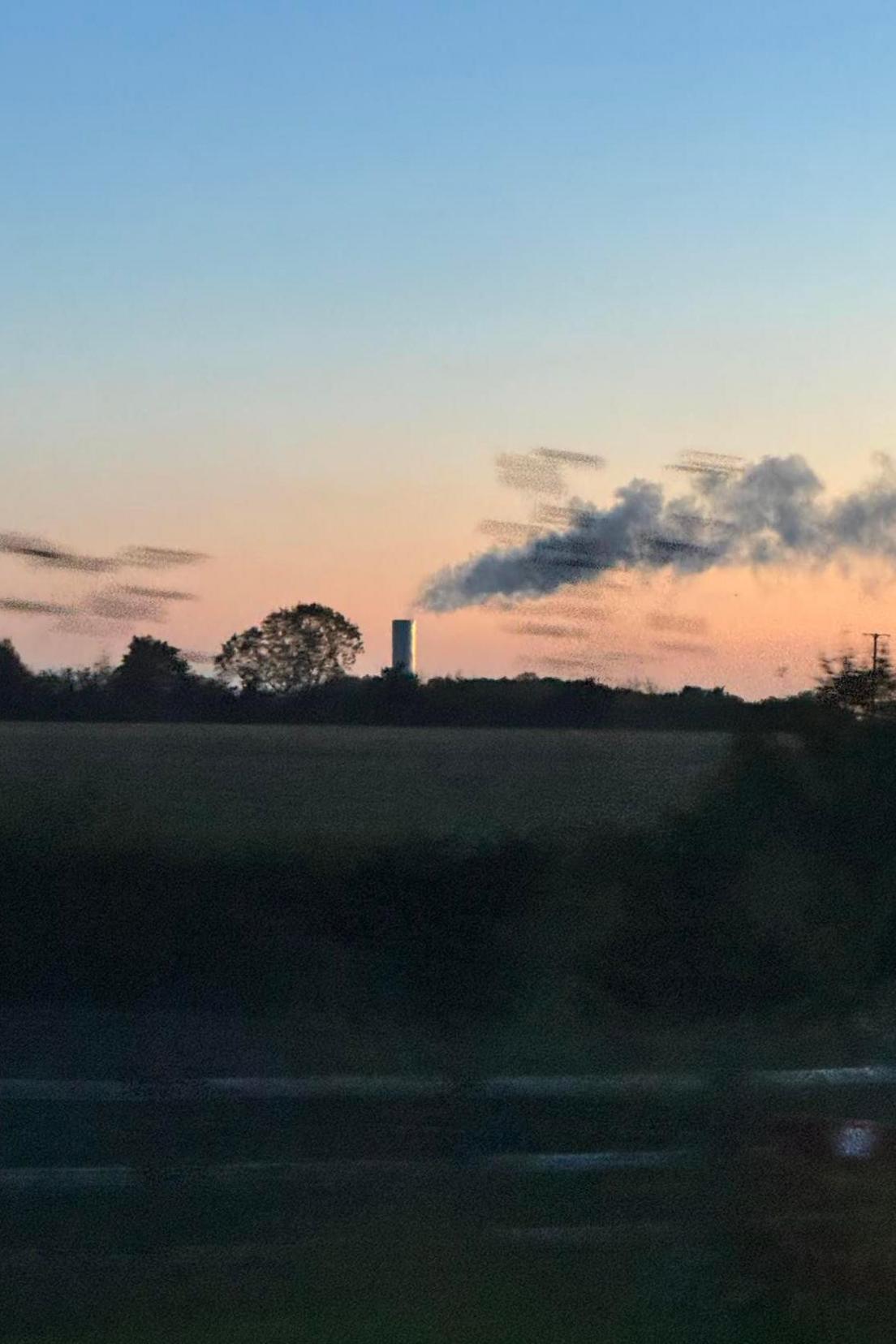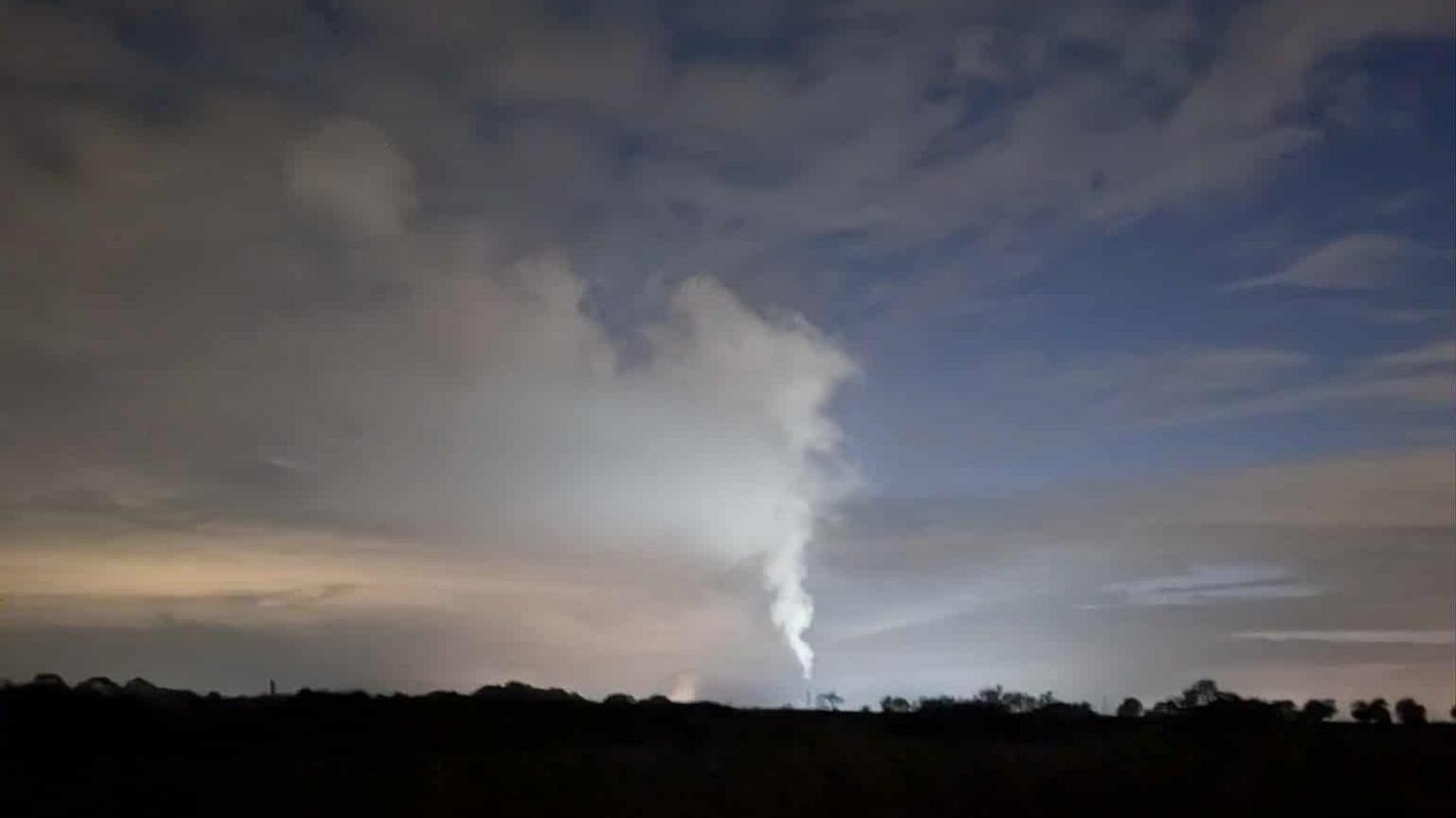Plant's request to emit steam sparks controversy
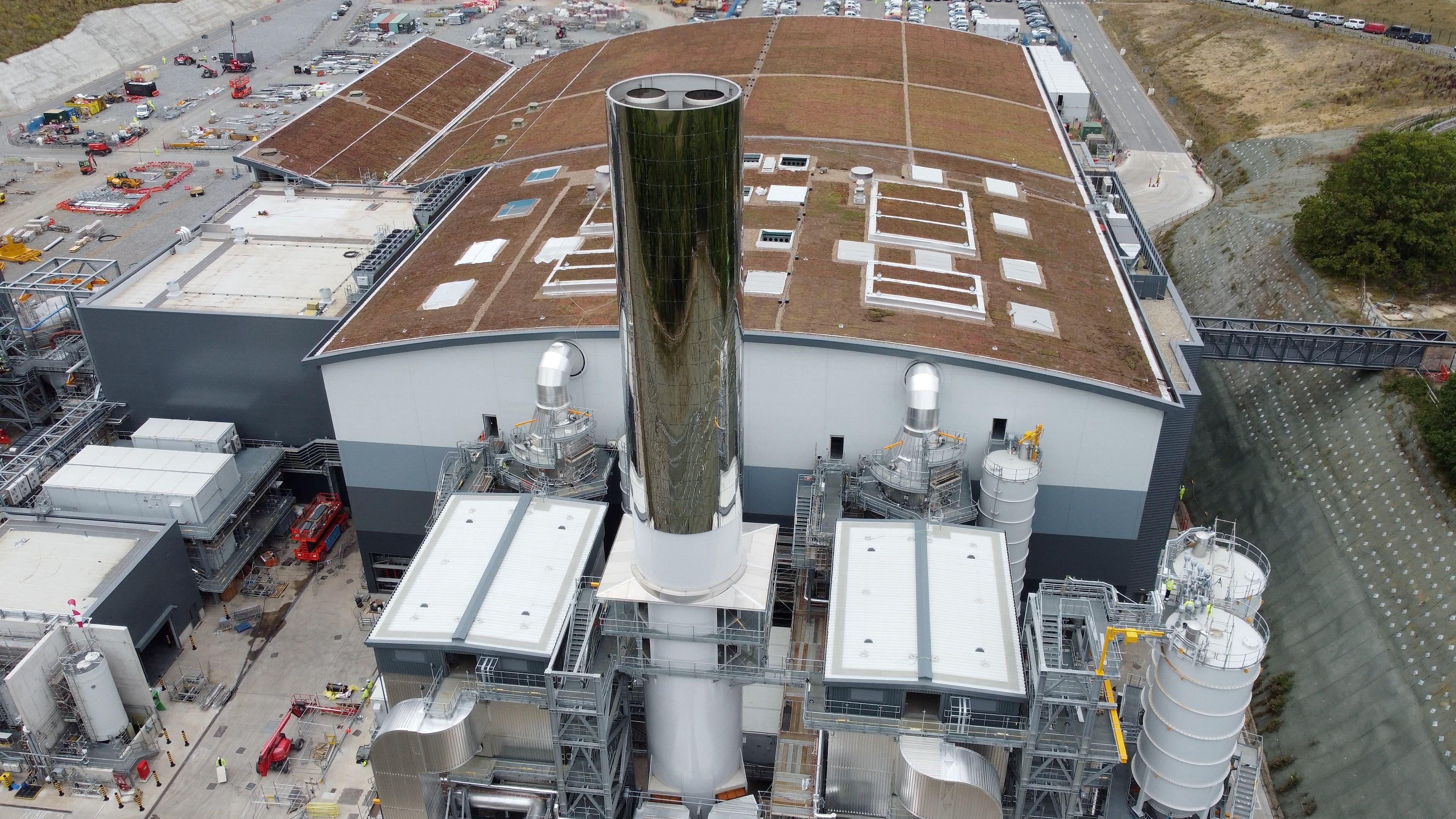
Indaver is seeking planning permission to have a visible plume from its Rivenhall incinerator.
- Published
A waste management company is seeking to amend its planning permission to allow visible steam plumes to be emitted from its chimney stack.
Indaver has been incinerating black bin waste at a facility in Rivenhall, Essex, since the start of summer. It was originally granted approval to do so on the condition that no visible plume was produced.
Gareth Jones from Indaver argued it would be "more energy efficient" if steam were allowed to be occasionally seen.
But this proposal has been met with resistance from the community, some of whom have already documented what they said were visible plumes coming from the site.
Photos and videos shared online show white clouds drifting from the chimney, prompting concerns about transparency and environmental impact.
However, Indaver said visible smoke was down to "commissioning the system" at the incinerator.
- Image source, Sarah Griffiths
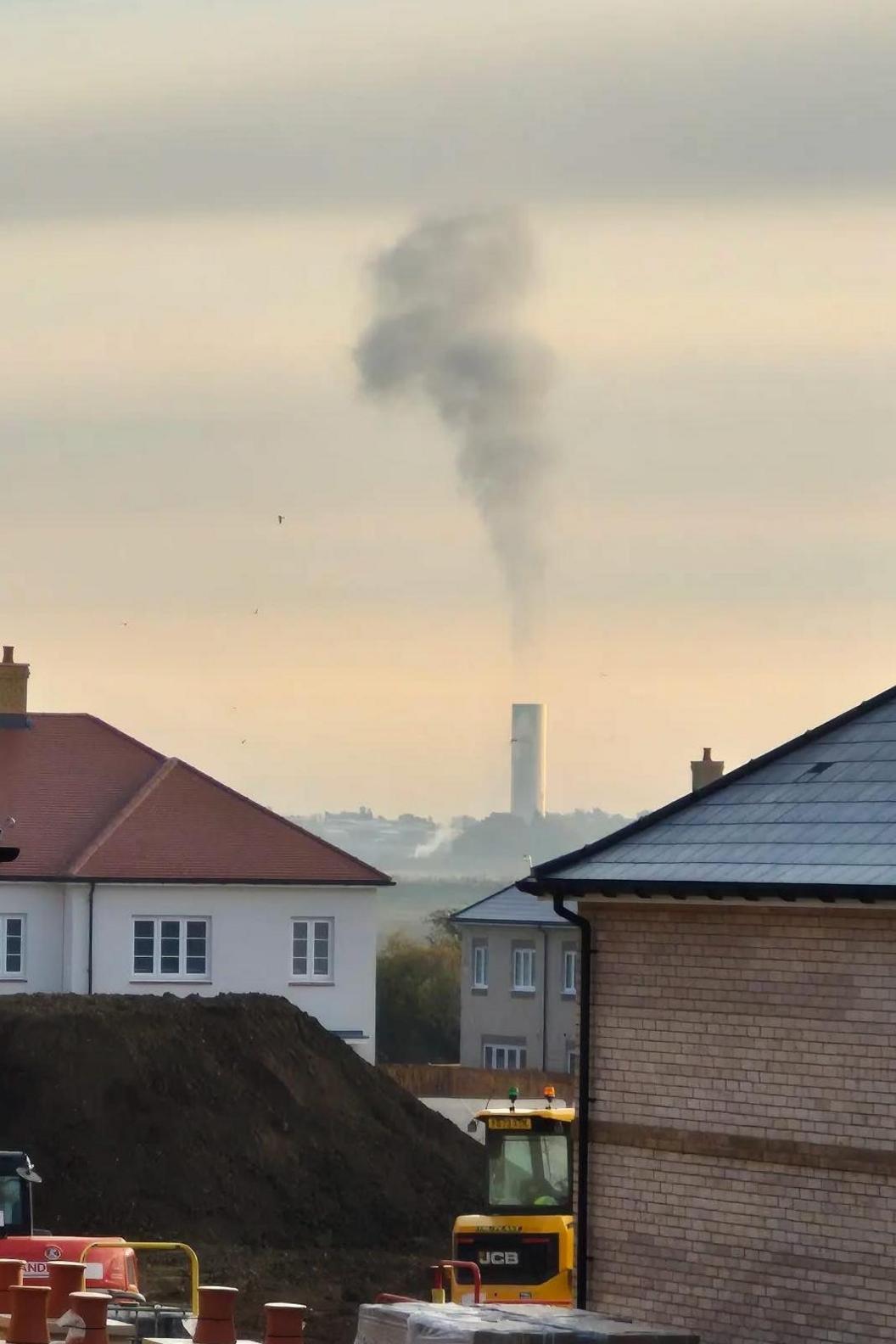
Image caption, Residents have posted pictures which appear to show smoke near the facility
1 of 6
Mr Jones told the BBC the plume was not allowed to be visible for "cosmetic reasons".
The project development specialist said 4MW of power was heating the plant's stack to 230C so no plume could be seen. He claimed that energy could be used to power 12,000 homes.
"We are diverting heat that could be used to power the turbine and produce electricity," he explained.
"We are just using that heat to reheat the steam, so there is no visible plume."
He admitted there would be a commercial benefit in selling more energy and that "there is obviously a financial impact of wasting that energy".
'We notice the plume a lot'
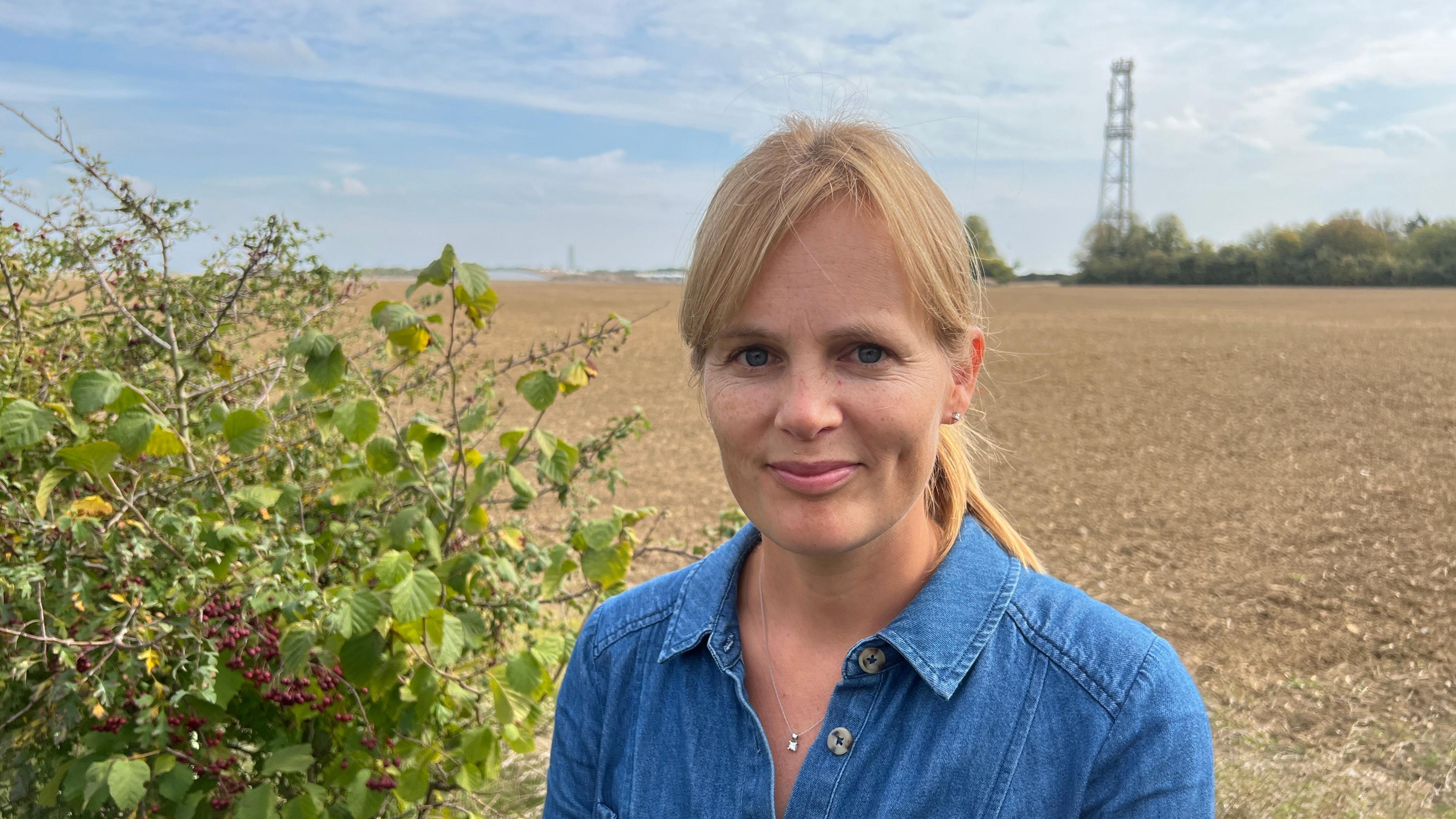
Chloe Henderson, 42, said she regularly saw a plume from the incinerator
Chloe Henderson regularly walks with her children along the public footpaths near the waste plant.
The 42-year-old said: "We notice the plume an awful lot. Sometimes I have been calling the Environment Agency two or three times a day."
She added: "It's an absolute blight on the environment and the countryside. It's absolutely nothing like what the planning permission allowed for."
She said at times she had smelt an odour from the incinerator "like burning tyres".
Tom Denton has lived in Silver End, a community near the plant, for 44 years.
He also claimed to have smelt "a nasty chemical smell, like plastics burning", which he believed came from the facility.
He said: "I can't prove it. But I do know what the farmer's fields smell like when they spread fertiliser, and I do know what bonfires smell like.
"This was nothing like that at all."
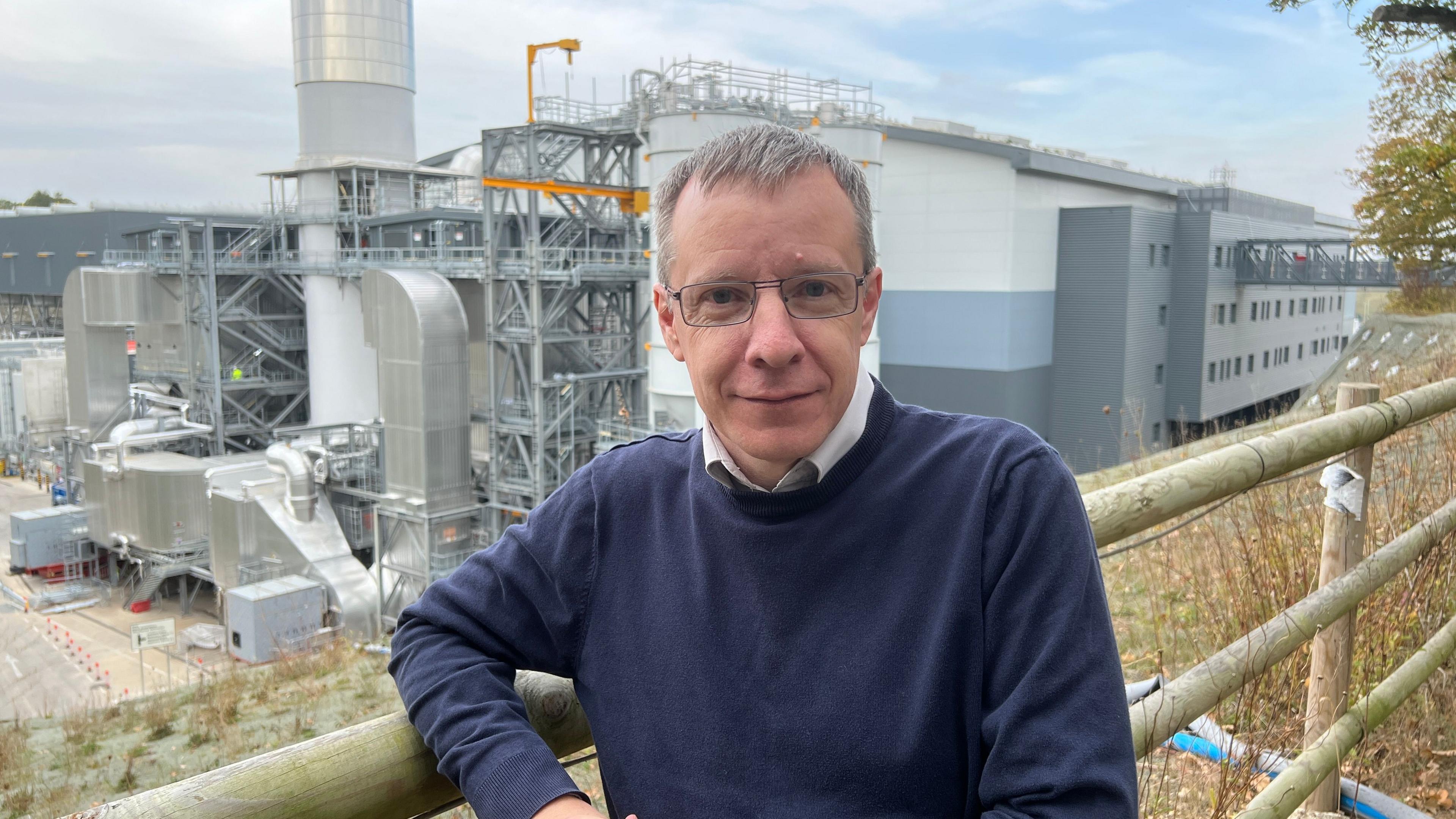
Indaver's Gareth Jones said it would be more energy efficient to power houses than prevent a visible plume.
Indaver said the plant was already powering the equivalent of 100,000 homes.
Mr Jones denied the odours were from the plant. He said steam had been seen "because we are still commissioning the system" and claimed black smoke was only released in July.
The Environment Agency said there had been dust particles and ammonia emission breaches at the site in August. But added that "there would have been no risk to local air quality or to public health".
Essex County Council is set to discuss the proposal to change the planning conditions of the plume soon.
The authority has a multi-million-pound contract for its household waste to be incinerated at the plant.
Gabrielle Spray, planning cabinet member on Braintree District Council, said the authority would consider referring the matter to the government depending on the county council's decision.
The Conservative councillor said: "The Environment Agency is looking into reports of a plume and odour coming from the site."
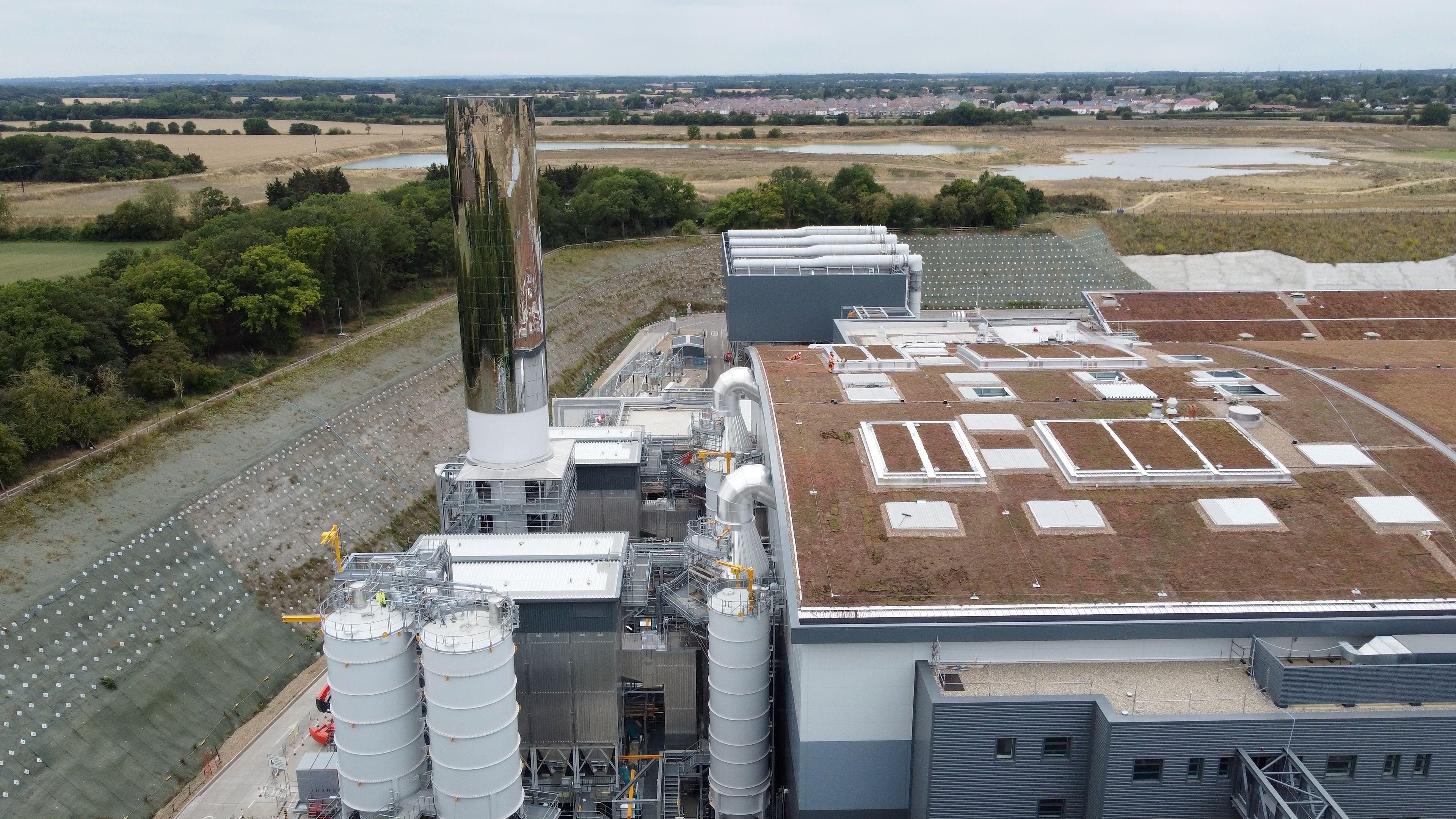
The Rivenhall incinerator has received all the black bin waste from the Essex county area since July.
The original planning application included a food waste and paper pulping plant.
Mr Jones said "it is unlikely we will be building those" as there was currently "not a need for that kind of facility".
Another firm has put in a separate planning application to build 40 hectares of glasshouses next to the plant.
It said they would produce 7% of the tomatoes consumed in this country, and would be powered by the incinerator.
Get in touch
Do you have a story suggestion for Essex?
Follow Essex news on BBC Sounds, Facebook, external, Instagram, external and X, external.
- Published4 August
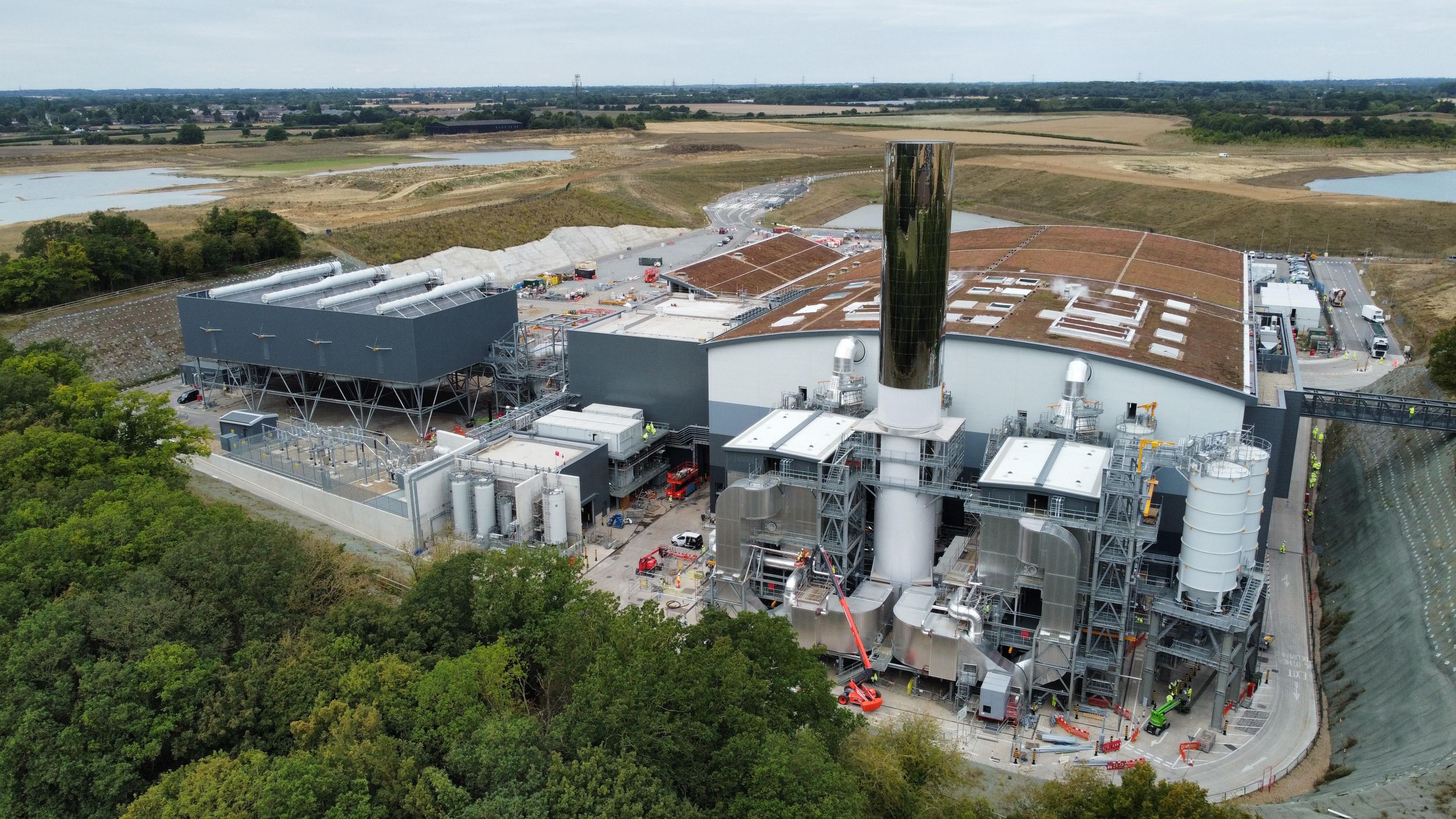
- Published30 July
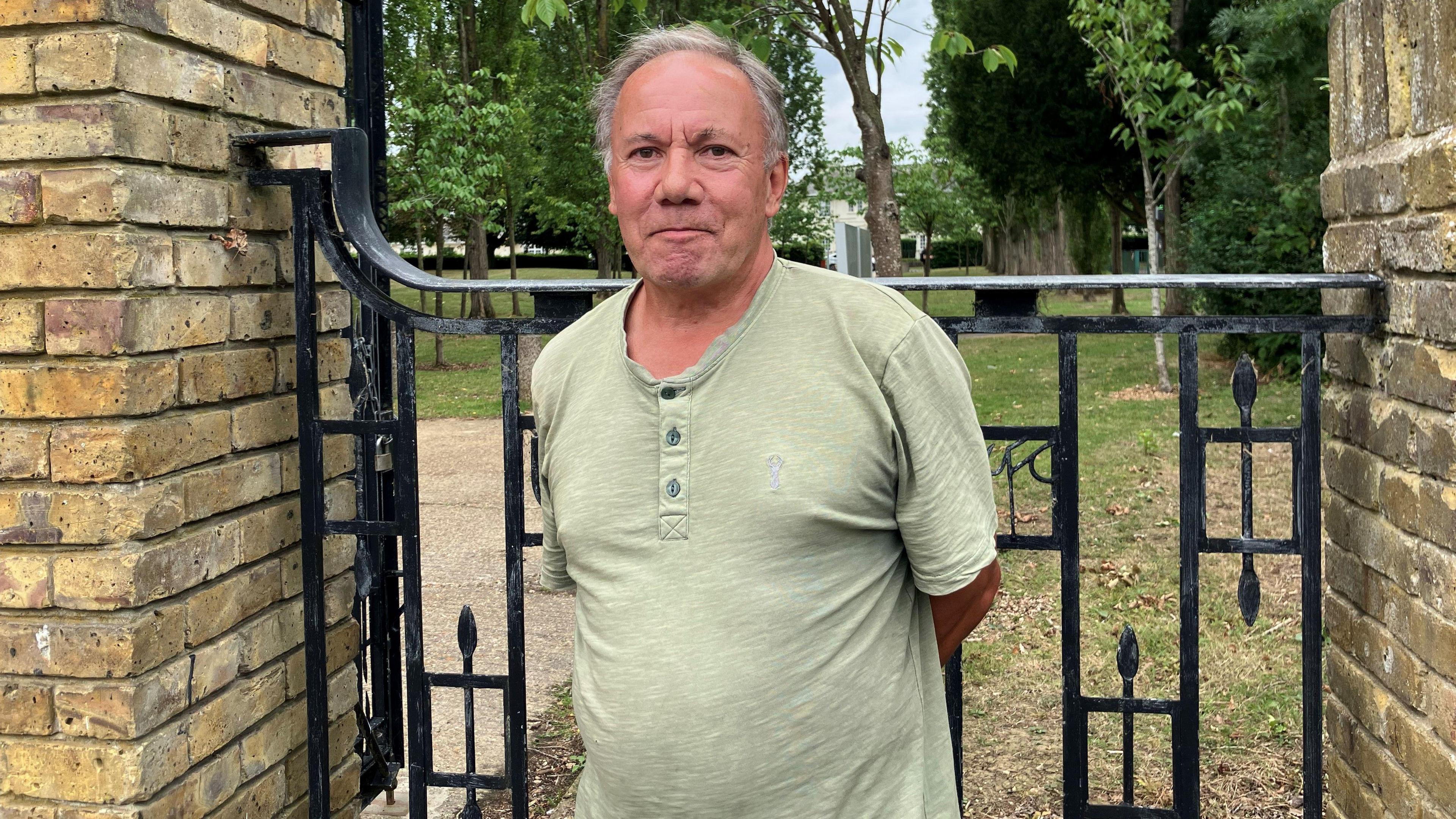
- Published28 July
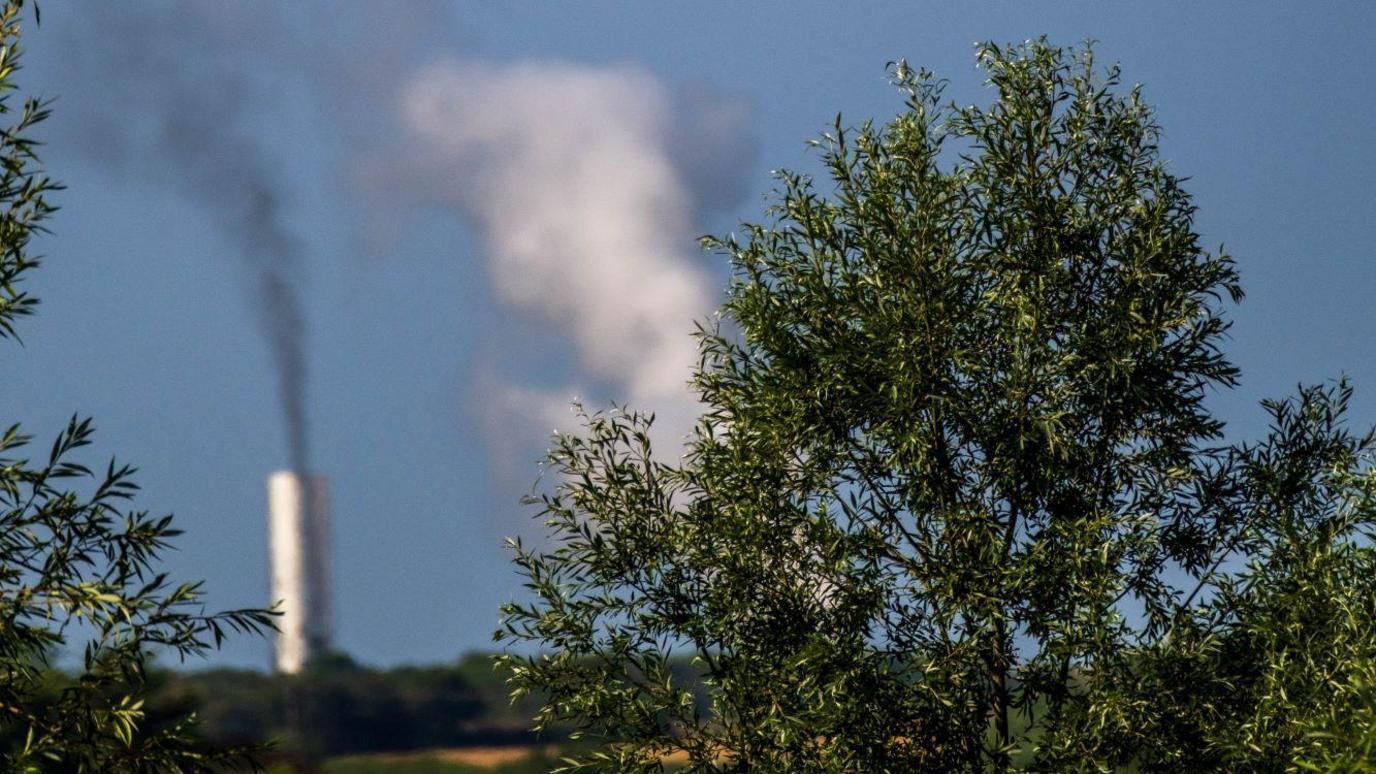
- Published7 February
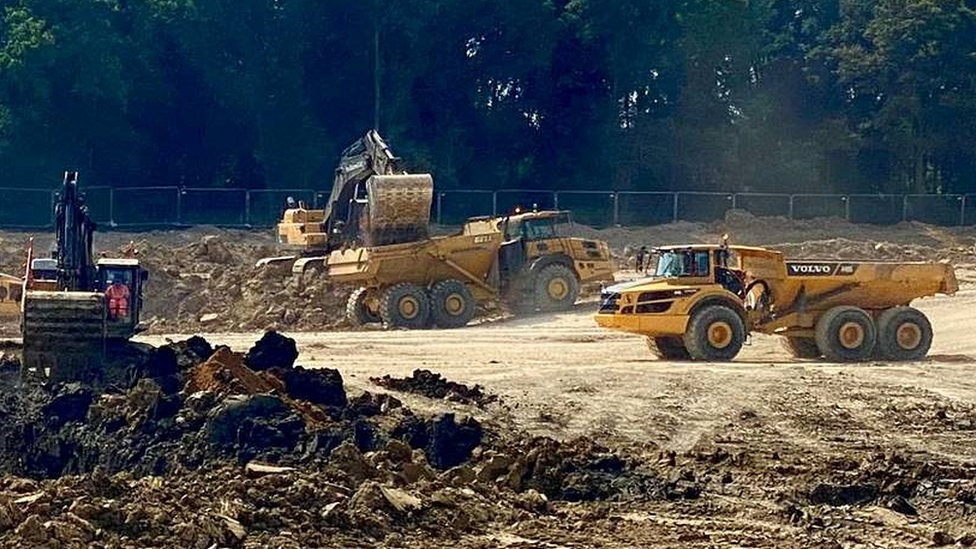
- Published23 September 2022
